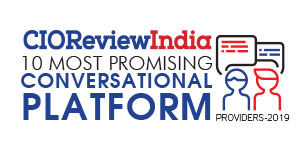Customizable Voice Bots
Voxta speech recognition engines, voice bots and data analytics products are targeted towards banking and financial services, e-commerce, travel, telecom and other customer facing industries. “After reaching out to urban, English speaking customers, every business is now trying to exploit the potential market of local language Indian customers. The easiest way to do this is through a voice interface. Our vernacular speech recognition engines and customisable voice bots remove the friction of typing in a local language on a small mobile screen. Voxta offers businesses an easy and tailormade platform to serve the vernacular customer through client specific voice bots.Voxta’s distributed data platform collects and annotates multiple data sets in different languages and accents for specific customer requirements. We have thousands of workers distributed around the country to collect and process the data accurately. We own our speech recognition engines, so our clients own their data,” said Sirish Reddi, co-founder.
Voxta’s voice assistants for banking customers are used for financial transactions and provide 24/7 customer service and information on banking queries. Voxta voice sales assistants integrate with e-commerce APIs to provide customers a hassle free, multi-lingual voice shopping experience for refunds, delivery and other service related issues. Voxta also provides voice and text data analytics for its clients.
IVR Surveys and Campaigns
Voxta launched its IVR voice assistant services with Narendra Modi’s campaign for the 2014 general election, helping him reach voters across the country. Callers were able to ask for his views on the issues that mattered to them and hear pre-recorded clips of him speaking about those issues, using the Voxta speech recognition IVR platform. Voxta then partnered with Dettol for a Swachh Bharat campaign to increase awareness among the people on personal hygiene and sanitation.
Voxta also has a bilingual voice teaching assistant Chatchit, to help users learn and assess their spoken English, using speech recognition. The company’s spoken English test module is widely used by corporates to train and test their new employees’ language skills. Voxta won the AI for Good Award, conducted by NASSCOM for its innovative and informative voice bots. The company has partnered with the world’s leading speech research institute IDIAP located in Switzerland. “We provide voice assistant and services cutting across the industries and languages. With a base in the UK, and Hyderabad, Voxta plans to tap into the global market for voice assistants, estimated to be worth over US$7bn in the next 5 years,” concludes Kavita Reddi.
IVR Surveys and Campaigns
Voxta launched its IVR voice assistant services with Narendra Modi’s campaign for the 2014 general election, helping him reach voters across the country. Callers were able to ask for his views on the issues that mattered to them and hear pre-recorded clips of him speaking about those issues, using the Voxta speech recognition IVR platform. Voxta then partnered with Dettol for a Swachh Bharat campaign to increase awareness among the people on personal hygiene and sanitation.

Voxta’s distributed data platform collects and annotates multiple data sets in different languages and accents for specific customer requirements
Voxta also has a bilingual voice teaching assistant Chatchit, to help users learn and assess their spoken English, using speech recognition. The company’s spoken English test module is widely used by corporates to train and test their new employees’ language skills. Voxta won the AI for Good Award, conducted by NASSCOM for its innovative and informative voice bots. The company has partnered with the world’s leading speech research institute IDIAP located in Switzerland. “We provide voice assistant and services cutting across the industries and languages. With a base in the UK, and Hyderabad, Voxta plans to tap into the global market for voice assistants, estimated to be worth over US$7bn in the next 5 years,” concludes Kavita Reddi.






